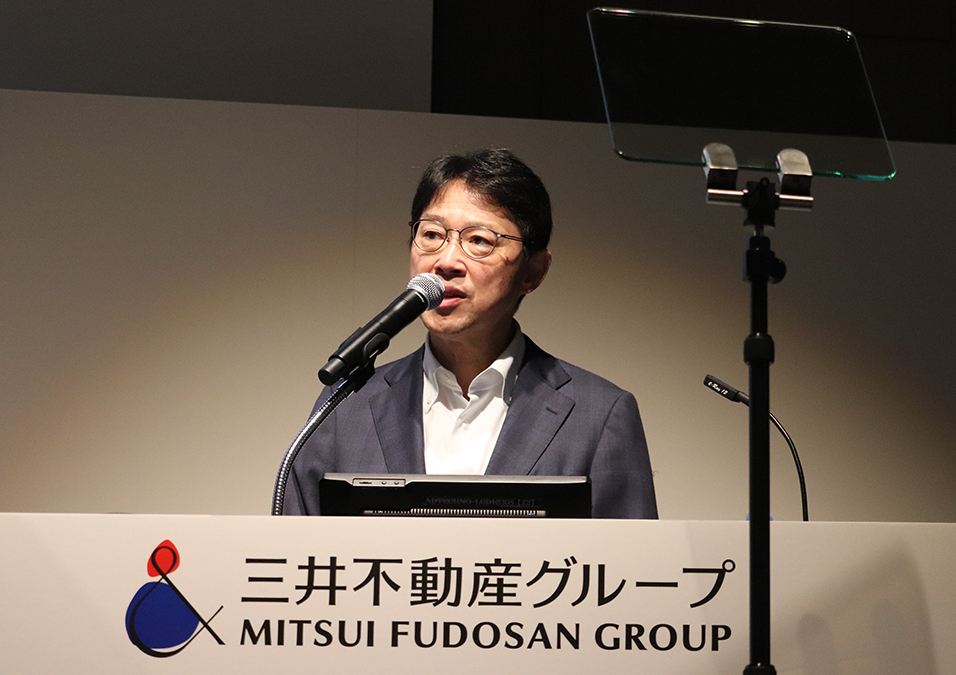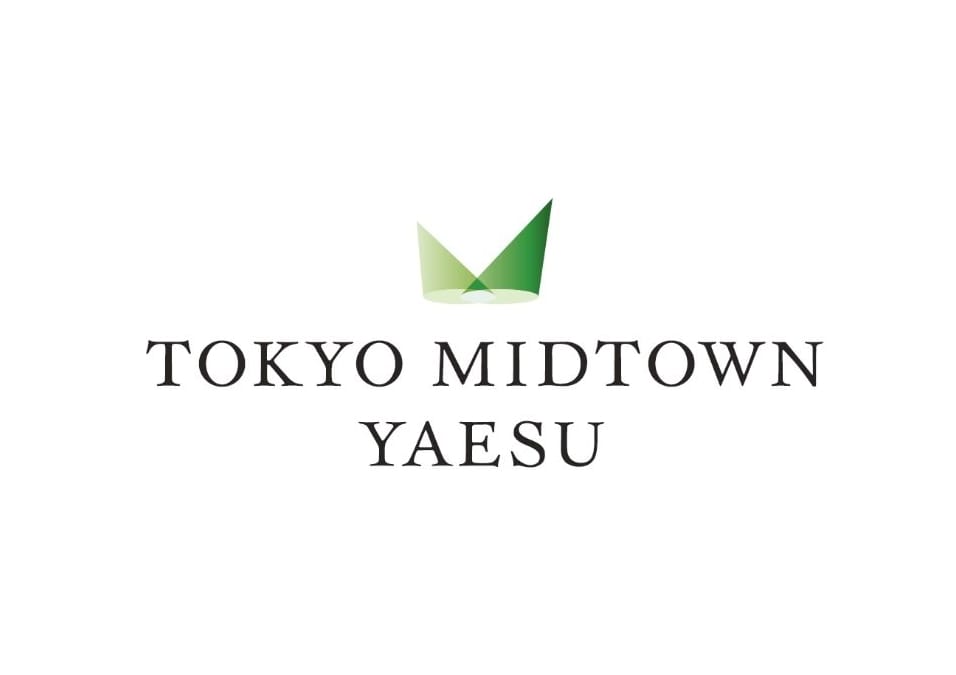Policy
As a corporate group supporting offices, housing, and other infrastructure necessary for daily life, we recognize that it is our duty to fulfill our social responsibilities at an even higher level. To accomplish this, we believe efforts should be made throughout the entire supply chain to promote sustainable procurement and thereby help resolve ESG issues. We have formulated Sustainable Procurement Standards summarizing basic guidelines in this area. We published these standards on our website in December 2018, and have notified our main business partners. In February 2022, as part of our human rights due diligence, we amended and added to the standards incorporating basic guidelines on the following items that should be complied with or actively promoted by both the Group and its suppliers: (1) Compliance with Laws and Regulations; (2) Respect for Human Rights in Business Activities; (3) Respect for Human Rights Related to Labor; (4) Safe and Healthy Working Environment; (5) Establishment of Business Ethics; (6) Ensuring Quality; (7) Consideration for the Environment; (8) Information Security; and (9) Crisis Management and Business Continuity Plan. To ensure sustainable procurement, we have included corrective measures and cooperation with monitoring and applying pressure to suppliers and contractors, by providing suppliers with cooperation requests alongside the standards. We have also produced separate manuals in two languages that go into more details on the standards so as to raise awareness internally and within the Group, as well as at all suppliers to communicate globally. Since October 2022 we have once again been notifying major partners to promote communication. The idea is to share these standards within the Group, build and operate an ordering and contract process in line with the nature of our business, and apply the same approach to our business partners. To realize a sustainable society, we are working to promote sustainable procurement throughout our supply chain.
Mitsui Fudosan Group Sustainable Procurement Standards
Established: December 5, 2018
Revised: February 4, 2022
Companies doing business with the Mitsui Fudosan Group (hereinafter, “companies”) shall not only comply with the applicable laws and regulations in their home countries and the countries and regions where they conduct business, but shall also respect internationally recognized standards of conduct.
2. Respect for Human Rights in Business ActivitiesIn order to ensure the implementation of business activities with consideration for human rights, companies shall identify in advance the potential adverse impact of their business activities on the human rights of various people, including foreign populations and indigenous peoples, and take preventive measures and/or remediation measures, making reference to international human rights norms such as the Universal Declaration of Human Rights.
2.1 Prohibition of unjust discrimination and human rights violations in business activitiesCompanies shall not engage in acts of unjust discrimination or be complicit in it in their business activities. In addition, companies shall ensure that their business activities do not cause nor are complicit in human rights violations.
2.2 Respect for the rights of socially vulnerable and minority groupsIn the provision of products and services, companies shall ensure that the basic needs of socially vulnerable and minority groups are met.
2.3 Universal designIn the provision of products and services, companies shall strive to offer universal design and services that are considerate of diverse situations, in order to ensure the convenience and comfort of all people.
3. Respect for Human Rights Related to LaborCompanies shall respect the human rights of workers, in line with international human rights standards, including the core labor standards established by the International Labour Organization (ILO), while also complying with relevant laws and regulations.
3.1 Freedom of association and right to collective bargainingIn compliance with local laws and regulations, companies shall respect the rights of employees to organize and bargain collectively as a means of participating in labor-management negotiations on working environment and wage conditions.
3.2 Prohibition of forced laborCompanies shall not use forced labor obtained through coercion, bondage, inhumane prison labor, slavery, human trafficking, or other such means. In addition, companies shall not force employees to work against their will and shall protect the right of employees to leave or terminate their employment of their own accord.
3.3 Prohibition of child labor and consideration for young workersCompanies shall not allow children under the minimum working age to work. In addition, companies shall not allow young workers under the age of 18 to engage in hazardous work that may jeopardize their health and safety, such as night shifts and overtime work.
3.4 Prohibition of discrimination in employmentCompanies shall not engage in any form of unfair discrimination, including unfair discriminatory treatments based on grounds such as race, nationality, ethnicity, skin color, age, gender, sexual orientation, gender identity, religion, beliefs, disability, marital status, pregnancy, political affiliation, or union membership, in any employment practice, including wages, promotion, compensation, and retirement.
3.5 Prohibition of abuse and harassmentCompanies shall respect the human rights of workers and shall not subject workers to inhumane treatment, including psychological or physical abuse, coercion, harassment, or any other potentially inhumane acts.
3.6 Adequate wages and allowancesCompanies shall comply with all applicable laws and regulations regarding compensation paid to employees (including minimum wages, overtime pay, and legally mandated allowances and deductions) and social security.
Furthermore, companies shall strive to pay wages at a level that allows workers to support their basic needs (a living wage).
3.7 Appropriate working hours, holidays, and leaveCompanies shall not allow workers to work in excess of the maximum working hours set by local laws and regulations, shall appropriately manage working hours and days off in consideration of internationally recognized standards, and shall grant annual paid leave in compliance with local laws and regulations.
4. Safe and Healthy Working EnvironmentIn addition to complying with the relevant laws and regulations, companies shall also pay due attention to domestic and international guidelines on worker safety and health, and make efforts to provide a safe and healthy working environment that minimizes work-related injuries and physical and mental illness.
4.1 Management of employee healthCompanies shall provide appropriate health management for all employees.
4.2 Occupational health and safetyCompanies shall identify and assess risks to occupational safety and ensure safety through appropriate design, engineering and administrative controls.
Companies shall also identify and assess the risk of worker exposure to biological, chemical, and physical hazards in the workplace, and implement appropriate management.
4.3 Consideration for physically demanding workCompanies shall identify and evaluate physically demanding work and implement appropriate management to prevent occupational accidents and illnesses.
4.4 Safety measures for machinery and equipmentCompanies shall evaluate the machinery and equipment used by workers in their work for safety risks and implement appropriate safeguarding measures.
4.5 Healthy, safe facilitiesCompanies shall ensure that the facilities provided for workers' lives (dormitories, cafeterias, toilets, rest areas, etc.) support adequate health and safety.
In addition, dormitories shall have appropriate emergency exits for emergencies.
4.6 Response in the event of occupational accidents or diseasesCompanies shall record and report occupational accidents and diseases, and take appropriate measures and corrective actions.
4.7 Promotion of communicationCompanies shall provide education and training on the appropriate health and safety information for the various occupational hazards that workers may be exposed to on the job, in the workers' native language or in a language and manners that workers can understand.
In addition, companies shall operate a system for workers to provide feedback on safety-related issues.
5. Establishment of Business EthicsCompanies shall conduct business activities based on high ethical standards in addition to compliance with the law.
5.1 Prevention of bribery and other forms of corruptionCompanies shall not engage in bribery, corruption, extortion, or embezzlement of any kind. In addition, companies shall not offer or condone promises, offers or permits as a means of obtaining bribes or other illicit or inappropriate benefits.
5.2 Avoiding interactions with organized criminal groupsCompanies shall avoid all interaction with organized criminal groups and other “antisocial forces” that threaten the order and safety of civil society.
5.3 Promotion of fair business activitiesCompanies shall promote fair business activities and refrain from acts that impede fair and free competition and acts of unfair competition.
5.4 Prohibition of abuse of dominant positionCompanies shall not use their dominant position to unilaterally determine transactions in their own favor or to the detriment of their business partners.
5.5 Protection of intellectual property rightsCompanies shall respect intellectual property rights, and the transfer of technology and know-how shall be done in a way that protects intellectual property. Companies shall also protect the intellectual property of third parties, such as customers and business partners.
5.6 Appropriate disclosure of informationCompanies shall appropriately disclose their financial and non-financial information in accordance with applicable laws and regulations as well as social norms and guidelines of industry associations. Falsification of records or disclosure of false information shall not be tolerated.
5.7 Establishment of grievance mechanism and protection of whistleblowersCompanies shall operate a grievance mechanism to investigate and respond to problems and allow employees and other whistleblowers to report them. Companies shall also protect the confidentiality of information and the anonymity of whistleblowers, and shall not retaliate in any way against whistleblowers.
5.8 Responsible procurement of raw materialsFor raw materials used in business activities, companies shall avoid those produced by unlawful means (including illegally logged timber and conflict minerals) and strive to utilize those produced with consideration for the environment and society, such as recycled timber and certified timber.
6. Ensuring QualityCompanies shall ensure and strive to enhance the safety and quality of the products and services they provide.
6.1 Consideration for security, safety, and health in urban developmentIn designing, manufacturing, and selling products, companies shall fulfill their responsibilities as suppliers by ensuring sufficient product safety, such as by meeting the safety standards stipulated by the laws and regulations of each country.
In addition, when providing services, companies shall strive to engage in business activities with consideration for the safety and health of the people who use the services and other related parties.
6.2 Quality management and quality assuranceCompanies shall comply with all applicable laws and regulations, their own quality standards, and customer requirements regarding the quality of products and services. In addition, companies shall have a system in place to receive and appropriately handle customer complaints and grievances.
6.3 Provision of accurate information on products and servicesCompanies shall provide accurate and non-misleading information about products and services to customers and consumers. They shall not provide false or falsified information.
7. Consideration for the EnvironmentCompanies shall proactively address global environmental issues such as resource depletion, climate change, and environmental pollution, while also considering local environmental issues to ensure the health and safety of the people in the communities involved.
7.1 Addressing climate changeCompanies shall work continuously to reduce their energy consumption and greenhouse gas emissions by striving to improve energy efficiency and introduce renewable energy.
7.2 Efficient use of resources and waste management and reductionCompanies shall comply with laws and regulations and engage in appropriate waste management. They shall also pursue reduction, reuse, and recycling in order to ensure resources are efficiently used and minimize the generation of waste.
7.3 Prevention of pollution and management of chemical substancesCompanies shall comply with relevant laws and regulations and implement appropriate measures to reduce the release of hazardous substances into the air, water, soil, etc.
In addition, companies shall manage hazardous chemical substances in order to ensure that they are identified, labeled, handled safely, transported, stored, used, recycled or reused, and disposed of in compliance with laws and regulations.
7.4 Reduction of water usageCompanies shall comply with laws and regulations, monitor the sources, uses, and discharge of the water used, and conserve water.
7.5 Conservation of biodiversityIn order to conserve the natural environment and ecosystems where diverse organisms live, companies shall work to reduce negative impacts of their business activities on them.
7.6 Provision of environmentally-friendly products and servicesCompanies shall be proactive in providing environmentally-friendly products and services. They shall also comply with all laws and regulations and customer requirements regarding chemical substances contained in products.
8. Information SecurityCompanies shall prevent leaks of confidential information and personal information and work to strengthen information security.
8.1 Information security and cyber securityCompanies shall not only appropriately manage and protect their own confidential information but also the confidential information received from customers and third parties. In addition, they shall take defensive measures against cyber-attacks and other threats to prevent damage to themselves and others.
8.2 Protection of personal informationCompanies shall comply with all relevant laws and regulations and appropriately manage and protect the personal information of all business partners, customers, employees, and others.
9. Crisis Management and Business Continuity PlanCompanies shall take appropriate measures to ensure the safety of their employees and other stakeholders, and to resume business activities as soon as possible, in the event of a natural disaster or accident.
9.1 Crisis managementIn order to minimize the damage to workers and assets caused by natural disasters, accidents, and other emergencies, as well as indirect damage to related parties and the public resulting from such damage, Companies shall establish action procedures for emergency measures, install the necessary equipment, and provide education and training to enable employees to take such action in the event of a disaster.
9.2 Business continuity plan (BCP)Companies shall identify and assess risk factors that could impede business continuity, and formulate a business continuity plan (BCP) that includes a close examination of the impact on business, the necessary medium- and long-term measures, and the status of initiatives.
Click the link here to see the Japanese version of the Mitsui Fudosan Group Sustainable Procurement Standards.
































